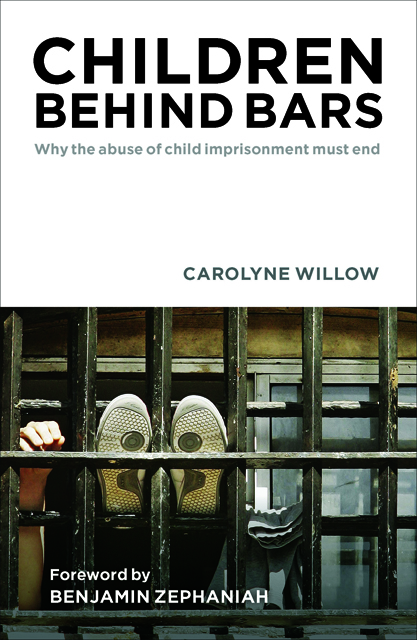Book contents
- Frontmatter
- Contents
- List of tables
- About the author
- Acknowledgements
- Preface
- Foreword by Benjamin Zephaniah
- one Introduction
- two ‘Things were not right at home’
- three ‘They just don’t listen’
- four ‘I think it’s quite like rape’
- five ‘I can’t breathe’
- six ‘What gives them the right to hit a child in the nose?’
- seven ‘We should be able to hug our families’
- eight ‘Every night I’m starving’
- nine Children were ‘given bags to urinate in’
- ten ‘The violence is unbelievable’
- eleven ‘Listen to the kids’
- twelve They shouldn’t be there
- Notes
- Index
six - ‘What gives them the right to hit a child in the nose?’
Published online by Cambridge University Press: 15 April 2023
- Frontmatter
- Contents
- List of tables
- About the author
- Acknowledgements
- Preface
- Foreword by Benjamin Zephaniah
- one Introduction
- two ‘Things were not right at home’
- three ‘They just don’t listen’
- four ‘I think it’s quite like rape’
- five ‘I can’t breathe’
- six ‘What gives them the right to hit a child in the nose?’
- seven ‘We should be able to hug our families’
- eight ‘Every night I’m starving’
- nine Children were ‘given bags to urinate in’
- ten ‘The violence is unbelievable’
- eleven ‘Listen to the kids’
- twelve They shouldn’t be there
- Notes
- Index
Summary
In June 2007, statutory rules were laid before parliament massively increasing restraint powers in secure training centres. The minister’s written statement eight days later began:
The recent inquest into the death in 2004 of Adam Rickwood has drawn attention to a lack of clarity as to the powers of custody officers in secure training centres to restrain trainees, where it is necessary to do so. We have been asked by the coroner to rectify the position and clarify the rules.
Two inquests were held into the prison death of 14-year-old Adam Rickwood, in 2007 and 2011. The second took place after his mother, Carol Pounder, brought a successful judicial review which ordered that jury members should be given guidance on the lawfulness of the restraint used on her son hours before he hanged himself. The coroner presiding over the first inquest had recommended ‘an urgent review’ of the law relating to restraint in secure training centres following claims by the Youth Justice Board (YJB) and Serco that officers were legally permitted to use restraint to secure good order and discipline, as had been done to Adam. Lawyers acting for Carol Pounder were alerted to the forthcoming change in the law through their correspondence with the YJB and Serco and, alongside campaigners, had been keeping track of new statutory instruments. Going on past form, there was little expectation among campaigners that any revisions to the law would be announced in a fanfare of publicity. It was clearly implausible that the discovered amendment rules originated from the coroner’s advice, as they appeared only a week after ministers received his written recommendations. In any case, the coroner had pressed for a review, not a change in the law. Besides, at the end of the previous month, before the inquest into Adam’s death had concluded, the then chief executive of the YJB, Ellie Roy, wrote a letter to the G4S and Serco directors of secure training centres:
I want to reassure you that the YJB has been working closely with the Ministry of Justice and previously the Home Office to amend the secure training centre rules in line with previous consultation with yourselves. I am advised that changes are imminent.
- Type
- Chapter
- Information
- Children behind BarsWhy the Abuse of Child Imprisonment Must End, pp. 121 - 154Publisher: Bristol University PressPrint publication year: 2015



